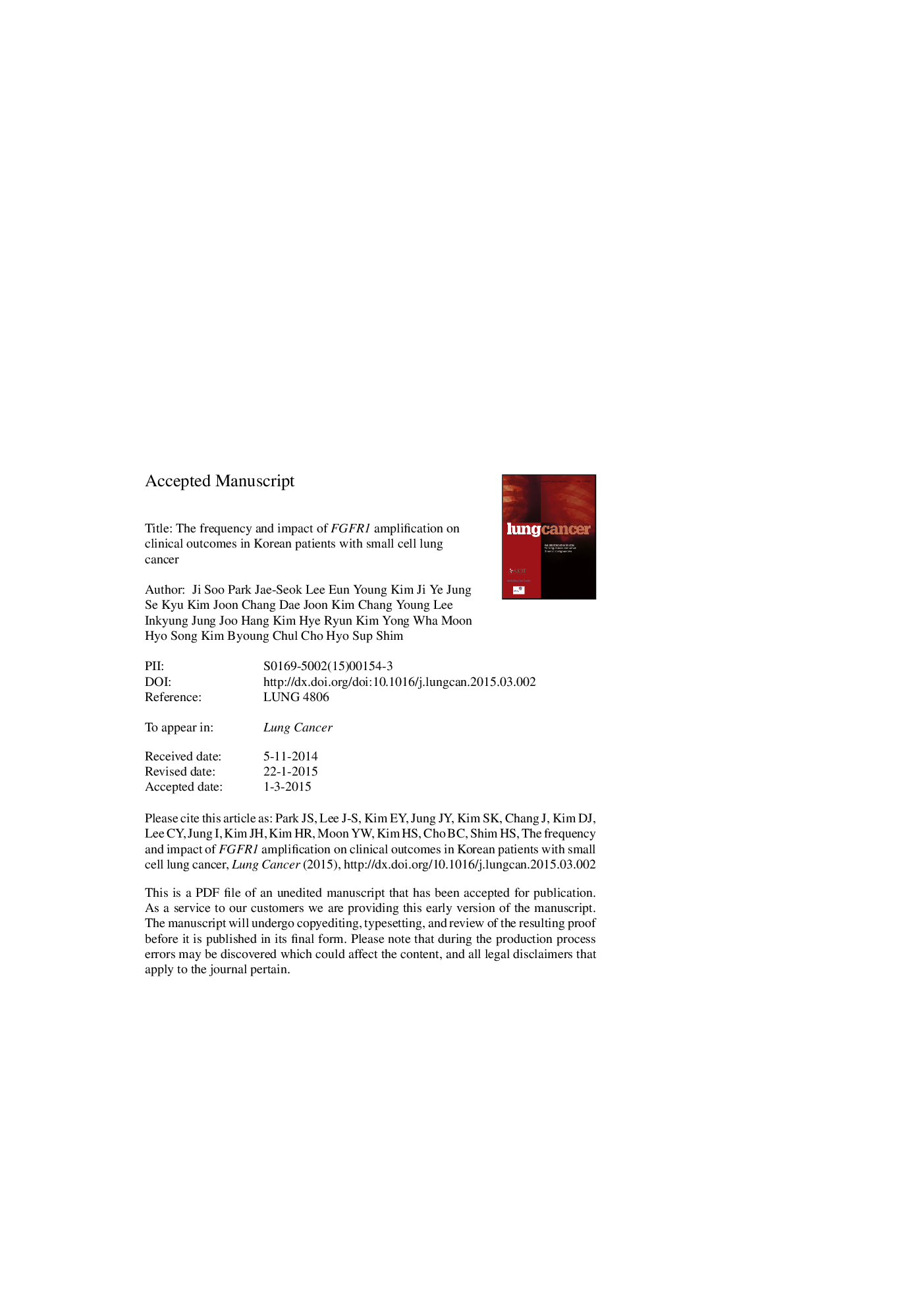| Article ID | Journal | Published Year | Pages | File Type |
|---|---|---|---|---|
| 10910872 | Lung Cancer | 2015 | 29 Pages |
Abstract
FGFR1 amplification was detected in three patients (1.9%) harboring extensive disease (ED). A multivariate analysis showed that among the patients with ED, FGFR1 amplification was associated with shorter disease-free survival to first-line chemotherapy with etoposide plus cisplatin or carboplatin (hazard ratio [HR]Â =Â 7.1; 95% confidence interval [CI]Â =Â 2.0-25.4; PÂ =Â 0.003). The median overall survival time of the patients with ED was 8.2 and 10.2 months among patients with and without FGFR1 amplification, respectively (PÂ =Â 0.37). Although FGFR1 amplification is rare in SCLC compared to non-small cell lung cancer or other malignancies with squamous histology, it is associated with poor survival following standard chemotherapy in SCLC. Further studies in large cohorts of patients with SCLC are needed to verify these results. Our results imply that FGFR1 may be a potential therapeutic target in SCLC and it could be confirmed in a clinical trial.
Related Topics
Life Sciences
Biochemistry, Genetics and Molecular Biology
Cancer Research
Authors
Ji Soo Park, Jae-Seok Lee, Eun Young Kim, Ji Ye Jung, Se Kyu Kim, Joon Chang, Dae Joon Kim, Chang Young Lee, Inkyung Jung, Joo Hang Kim, Hye Ryun Kim, Yong Wha Moon, Hyo Song Kim, Byoung Chul Cho, Hyo Sup Shim,
